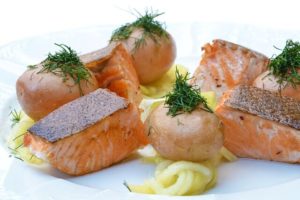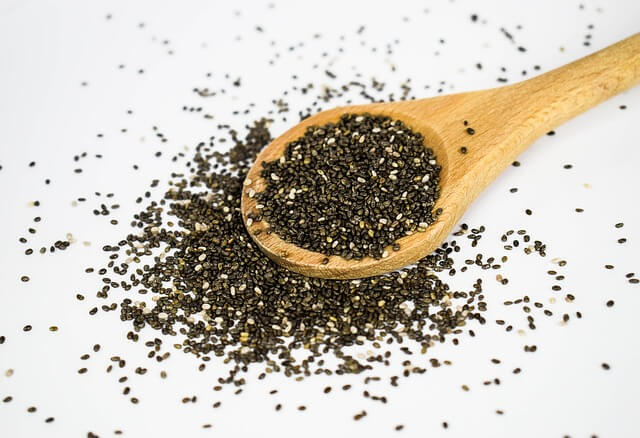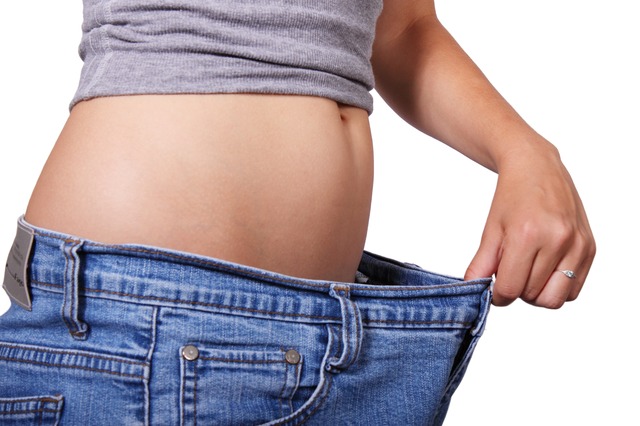Losing weight and maintaining your weight sometimes can be very hard, especially if your thyroid gland isn’t functioning properly and you feel tired most of the time.
However, you can control that condition and if you divide and solve challenges step by step you will succeed.
But first things first.
What is hypothyroidism?
Hypothyroidism is a metabolic disorder that affects more women than men.
When you have this disorder your thyroid gland produces less of the hormones: TSH (thyroid-stimulating hormone), T3 (triiodothyronine), and thyroxine.
These hormones stimulate your basal metabolism, improve protein synthesis, increase carbohydrate, fats, cholesterol metabolism.
When your thyroid gland isn’t functioning well you gain weight easily, and that’s one of the most common symptoms of hypothyroidism. (1)
Besides weight gain, the other symptoms are fatigue, slower heartbeat, cold sensitivity, vision problems, palpitations, constipation, limb stiffness, and headaches.
So, how to lose weight when you have hypothyroidism?
Here are the best tips you should follow to lose weight naturally:
1. Moderate physical activity

You need regular physical activity to burn fat and improve thyroid function.
Exercising speeds up your metabolism and a healthy diet improves thyroid function.
Weight loss means burning more calories than you intake during the day and that’s why physical activity is important in this process.
Also, physical activity improves your overall health.
You don’t need to do high-intensity workouts, but walking every day and weightlifting once a week is recommended.
Make sure you walk 30-45 minutes a day, or you can cycle, do pilates, yoga, speedwalking, etc. (2)
2. Balanced diet

A balanced diet consists of 3 meals and 1 snack in this case.
As always, make sure your meals are balanced because your metabolism works better and you improve its function.
The caloric value of all your daily meals shouldn’t be more than 1500-1800 kcal, so you need to choose your ingredients carefully.
Try to eat more lean proteins, whole grains, fruit, vegetables, and low-fat dairy products.
If you want to lose pounds you need to reduce the intake of salt and fat.
You should avoid refined sugar because it’s bad for you.
If you want to sweeten things use stevia instead.
3. Reduce the intake of carbs, sugars, and processed starchy food

This is one of the most important things.
Carbs, in general, aren’t that bad for your health and they don’t cause obesity nor diseases.
It all comes down to the total intake of calories per day, and it’s vital what type of carbs you intake.
For example, carbs with added sugars and processed starch are very unhealthy and unnecessary. (3)
They have almost no nutritious value and you just intake a big amount of empty calories.
That means you should cut out fast food, sodas, alcohol, white bread, refined grains, protein bars.
I know it seems difficult, but once you get used to it, you will be doing yourself a big favor.
4. Eat proteins and veggies

If you want to lose weight and you have hypothyroidism, every meal should be based on proteins and vegetables and there are 2 reasons for that.
Why proteins?
The main benefits of proteins are they are more saturated than fats and carbs and they can reduce your appetite and keep you from eating unnecessary calories.
Research has shown that diets based on a high intake of proteins can reduce cravings for 60 %.
Why vegetables?
They provide you with most of the vitamins, minerals, and other micronutrients.
Vegetables are a great source of fiber, nutrients that feed healthy bacteria, and some studies show that a lack of fiber creates bacteria disbalance in your gut. (4)
5. Increase the intake of selenium and zinc

These nutrients are directly connected with thyroid gland function and it’s very important to intake these minerals so that you improve the thyroid function and speed up metabolism.
Selenium is a mineral that helps your body to recycle iodine and that’s why it is found in the thyroid gland.
Foods high in selenium: cashews, tuna, sardines, beef, chicken, eggs, legumes.
Zink, on the other hand, is necessary for regulating TSH, and although it’s very rare to have zinc deficiency, you should increase the intake of zinc if you want to lose weight and you have hypothyroidism.
Foods high in zinc: oysters, beef, chicken, legumes, almonds, cashews, seeds, milk, yogurt.
Read more about the best vitamins and minerals for weight loss here.
6. Eat foods high in iodine

Iodine has an important role in hypothyroidism treatment.
Actually, iodine deficiency can cause hypothyroidism, so it’s essential to eat ingredients high in this mineral every day.
Foods high in iodine: dairy products, cranberry, strawberry, pumpkin seeds, spinach, chard, swede, zucchini, sea algae, potato, banana, eggs (boiled), fish (freshwater fish and sardines), seafood (mussels, oysters, lobster), turkey.
7. Eat foods high in fiber

One of the symptoms of hypothyroidism is constipation.
That’s why you need to intake enough fiber, 30 g per day is recommended.
You will regulate digestion, be full for a longer time, and you will reduce piling up fats and sugar.
Dietary fiber is found in wholegrain bread and pastry, fruit, vegetables. (5)
What to avoid if you have hypothyroidism and you want to lose weight?

Some ingredients can neutralize the effect of hypothyroidism drugs and slow down your metabolism.
That kind of food makes symptoms worse and stops weight loss, so you should avoid it.
Food that can slow down or stop the effect of drugs is walnuts, soy and soy flour products.
Also, food that disturbs the absorption of iodine such as cabbage, kale, Brussels sprouts, peanuts, mustard, lima beans, broccoli, cauliflower, corn, flaxseed.
Drinks that you should avoid: sodas, energy drinks, Indian tea.
Cut down on coffee, too.
So, what’s the bottom line?
If you want to lose weight with hypothyroidism you should now that it will not be easy.
But it’s possible.
You can lose weight if you have a balanced diet and you watch the calorie intake, physical activity and you cut out certain ingredients that neutralize the effect of drugs (if you take drugs) and slow down your metabolism.
Note: If you think you have symptoms of hypothyroidism, visit your doctor to get checked and get appropriate treatment.

Hi, I am Stacey and I am the author of beautyandhealthlife.com. I have 10+ years of experience in fitness and weight loss and I want to share my knowledge with you. I am here to help you lose weight and tone your body.





No Comments